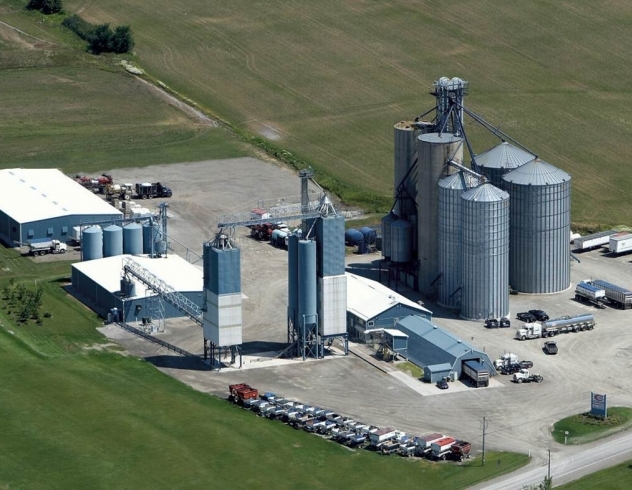News & Events

Liquid Starter Pros & Cons
December 05, 2017

The snow is staring to fly and machinery is tucked away in the shed. This time of year I often get asked about machinery improvements. I think farmers are looking to stave off the cabin fever.
One of the topics that seems to never be solved is the debate of dry versus liquid fertilizer for starter. I get asked “Hey Ell, we are thinking of putting a liquid starter kit on our drill, what do you think?” Typically, I am a dry starter type of guy. However, there are both pros and cons with a liquid starter system.
The main downside of liquid starter is the cost. When compared to MAP on a $ per pound of actual phosphorus, a liquid fertilizer like 7-23-3 is often 3 times as expensive. Sure there is often a bit of potash and sometimes micros added to the liquid fertilizer but the main purpose of starter is to provide phosphorus to the young growing plant while its root system is developing. In fields that have low phosphorus soil tests there is a larger benefit from applying more dry fertilizer, even if it has to be broadcast and worked in, than spending the same amount of money on some “pop-up” liquid.
Liquid does have its purpose though. In high testing soils, liquid starter can be beneficial in the sense it is easy and quick to fill. This can reduce the time in the spring spent filling the planter which allows you to plant more acres per day.
The final consideration would be that a liquid starter program can not supply the phosphorus and potash removed by high yielding crops. 5 gallons of starter only provides about 15lbs of phosphorus and 3lbs of potash. A good crop of beans or corn can remove between 40-50lbs of phosphorus and 40-60 lbs of potash. If a farmer is using liquid starter they must take into account crop removal and replenish the fertility either through dry fertilizer or other sources at some point in the cropping cycle.
If you have concerns about your fertilizer strategy for 2018 give your Clark agronomist a call, and we would be happy to hear from you.

This Crop Corner has been written by Elliott Armstrong, Sales Agronomist at Clark Agri Service. Elliott can be reached by email earmstrong@clarkagriservice.com or by phone 905-981-0045